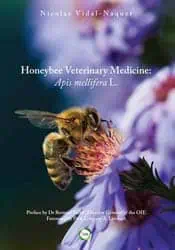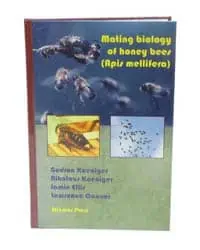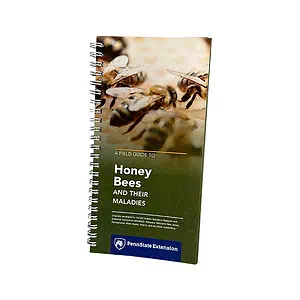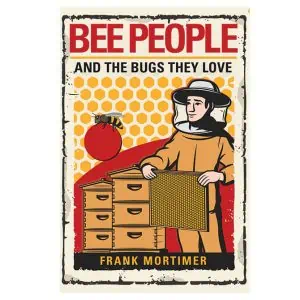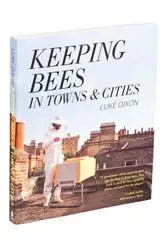Honeybee Veterinary Medicine
$74.95 $63.71
Nicolas Vidal-Naquet’s Honeybee Veterinary Medicine book is for beekeepers with questions about their practice as well as for veterinarians who want to study and work with honeybees. Effective January 1, 2017, if a beekeeper needs to give a hive antibiotics, they need to have a prescription or a veterinary feed directive from a licensed veterinarian with whom they have a valid veterinarian-client-patient relationship. There are not many veterinarians in the US that have worked with honey bees. There have been a lot of inquiries from veterinarians about bees to us at Betterbee because the 3 owners are veterinarians. There is a website, www.BeeVets.com where a veterinarian can go to get information or a beekeeper can go to look for a veterinarian. We have also identified this book as a nice resource for a veterinarian. Consider this European book if you are a veterinarian looking to learn about diseases or if you have a veterinarian you would like to encourage to learn about diseases.
Honeybees are an essential part of farming and the wider ecosystem. Since the middle of the 1990s bee populations around the world have suffered dramatic decline through diseases, intoxication, and unknown causes. Veterinarians have had little training in bee health but as the situation continues, qualified animal health professionals and, in particular, veterinarians are being required to become involved as new dangers threaten honeybee health everywhere because of global apiculture trade and exchanges of honeybees, products of the hive and beekeeping material such as Aethina tumida (the small hive beetle – a beekeeping pest) introduced in Italy in 2014 or the mite Tropilaelaps spp (parasitic mites of honeybees).
This book will provide an overview of bee biology, the bee in the wider environment, intoxication, bee diseases, bee parasites (with a large part dedicated to the mite Varroa destructor) pests, enemies, and veterinary treatment and actions relating to honeybee health. The book will also cover current topics such as climate change, crop pollination, use of phytosanitary products, antibiotic resistance, and Colony Collapse Disorder.
While aimed at veterinary practitioners, students, and veterinarians involved in apiculture and bee health (officials, researchers, laboratory veterinarians, biologists…), the book can also be beneficial to beekeepers, beekeeping stakeholders, animal health and environmental organizations. Hardcover.
Nicolas Vidal-Naquet, DVM, graduated in apiculture and Honeybee medicine, is a veterinary practitioner and lecturer in Honeybee biology and diseases at the Veterinary School of Alfort, France.
